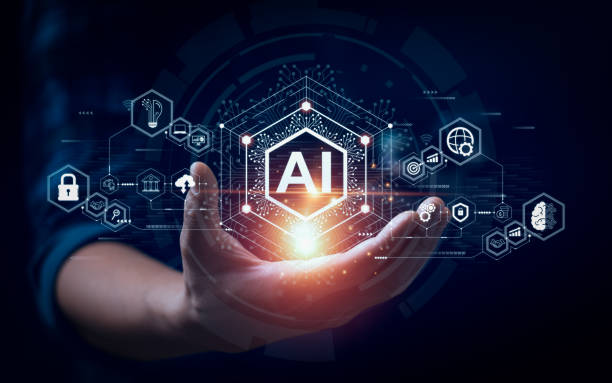AI and the Stock market: Revolutionizing Investment Strategies

Artificial Intelligence (AI) is transforming the stock market, redefining how trades are executed, portfolios are managed, and risks are assessed. What was once a domain dominated by human intuition and manual analysis has now been infused with machine learning algorithms, predictive analytics, and automated trading systems stock ai . The rise of AI in the stock market has not only increased efficiency but also democratized access to advanced trading tools, making them available to both institutional investors and individuals.
In this article, we explore the transformative impact of AI on stock trading, the technologies driving this revolution, its benefits, challenges, and its promising future.
The Role of AI in Stock trading
AI in stock trading refers to the use of machine learning algorithms, natural language processing (NLP), and data analytics to analyze market trends, predict price movements, and automate trading decisions. These systems can process vast amounts of data in real-time, enabling investors to respond faster and more accurately to market fluctuations.
Key AI-driven applications in stock trading include:
- **Predictive Analytics: ** AI models analyze historical stock data to identify patterns and forecast future price movements. This predictive capability helps traders make informed buy and sell decisions.
- **Algorithmic Trading: ** Automated trading systems use predefined algorithms to execute trades based on specific market conditions, eliminating emotional decision-making.
- **Sentiment Analysis: ** AI tools assess public sentiment by scanning news articles, financial reports, and social media to gauge market sentiment and predict its impact on stock prices.
- **Portfolio Management: ** AI assists in creating and managing diversified portfolios tailored to an investor’s risk tolerance and financial goals.
- **Risk Management: ** By evaluating market volatility and historical performance, AI provides insights into potential risks and suggests strategies to mitigate them.
The benefits of AI in Stock trading
AI offers a plethora of advantages that are reshaping the financial landscape:
1. Data-Driven Decision Making
AI systems process and analyze immense datasets faster than any human could, delivering actionable insights based on factual trends rather than guesswork.
2. Speed and Efficiency
In stock trading, speed is critical. AI can execute trades in microseconds, allowing investors to capitalize on fleeting market opportunities.
3. Emotion-Free Trading
Human emotions like fear and greed often lead to poor investment decisions. AI, on the other hand, relies solely on data and predefined parameters, ensuring rational trading.
4. Enhanced Accessibility
AI-powered tools have become increasingly available to retail investors through platforms and apps, leveling the playing field with institutional traders.
5. Round-the-Clock Market Monitoring
Unlike human traders, AI systems can monitor global markets 24/7, ensuring no opportunity is missed, regardless of time zones.
Challenges of AI in Stock trading
While the benefits of AI in stock trading are undeniable, there are challenges that cannot be overlooked:
1. Over-Reliance on Technology
Investors may become too dependent on AI tools, neglecting fundamental analysis and human judgment, which are still critical in many scenarios.
2. Data Quality and Bias
AI is only as good as the data it processes. Poor-quality or biased data can lead to inaccurate predictions and suboptimal trading strategies.
3. Market Volatility
High-frequency trading driven by AI can amplify market volatility as algorithms react instantaneously to price changes, sometimes leading to flash crashes.
4. Regulatory Concerns
Regulators face the challenge of keeping up with the rapid pace of AI innovation. Ensuring transparency, fairness, and preventing misuse of AI tools are ongoing issues.
5. Ethical Implications
The widespread adoption of AI in trading raises ethical concerns, such as the potential for AI systems to be manipulated or for smaller investors to be disadvantaged.
The future of AI in Stock trading
The integration of AI into the stock market is still evolving, with several trends shaping its future:
1. AI-Powered Personalized Advisors
Robo-advisors are becoming more sophisticated, providing tailored investment advice and portfolio management services to individual investors.
2. Integration with Blockchain
Blockchain technology combined with AI could enhance transparency and security in trading, automating processes like settlement through smart contracts.
3. Skill-Based Trading Systems
Some developers are exploring hybrid models where AI tools incorporate user inputs, blending human expertise with machine efficiency.
4. Advanced Sentiment Analysis
Future AI systems will likely provide deeper insights into market sentiment by analyzing voice tones in earnings calls or nuanced language in financial reports.
5. Global Market Expansion
AI is breaking down barriers, enabling seamless access to international markets and creating opportunities for cross-border investments.
How to Leverage AI in Stock trading
For investors looking to embrace AI, here are some practical steps:
- **Choose the right Platform: ** Select a trading platform that offers robust AI tools and analytics tailored to your needs.
- **Start Small: ** Begin with a modest investment to familiarize yourself with AI-driven strategies.
- **Combine AI with Human Insight: ** Use AI as a supplement to, rather than a replacement for, your own analysis and expertise.
- **Stay Informed: ** Keep up with developments in AI technology and the financial market to leverage the latest advancements.
- **Practice Responsible Trading: ** Set limits and ensure you’re not overexposed to risks, even when using AI tools.
Conclusion
AI is revolutionizing stock trading, providing unprecedented levels of accuracy, efficiency, and accessibility. While challenges remain, the potential benefits far outweigh the risks, making AI a game-changer for both seasoned investors and newcomers. As technology continues to advance, the future of stock trading will likely be defined by the synergy of human expertise and artificial intelligence. Investors who embrace this evolution stand to gain a significant edge in the competitive world of finance.




